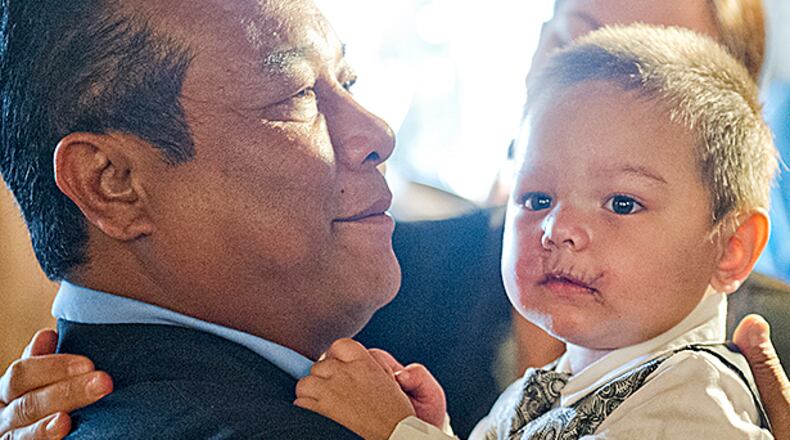Before the fatal shooting of an unarmed teen in Ferguson, Mo., the maiming of a toddler in Habersham County toddler sparked an intense debate over how police deal with suspected lawbreakers.
The district attorneys in each case decided to yield their power as final arbiter to a grand jury. Typically, prosecutors come with charges in hand and are very rarely denied the approval to indict.
Mountain Judicial Circuit District Attorney Brian Rickman, who handled the Habersham case, said letting the grand jury investigate is a “form of checks and balances.”
The Habersham grand jury declined to bring any charges against the deputies involved in planning and carrying out the drug raid that left 19-month-old Bounkham "Bou Bou" Phonesavanh seriously injured after a stun grenade exploded in his playpen.
Most observers expect the same result from the Ferguson grand jury, whose decision is expected any day on whether to charge the police officer who shot Michael Brown.
"It's a politically expedient way for a prosecutor to deflect criticism," Marietta defense attorney Philip Holloway, formerly a prosecutor, told me in September. "This allows him to say 'Hey, I presented evidence to the grand jury but they decided not to indict.'"
But the grand jury is still going to follow the prosecutor’s lead “99 percent of the time,” Holloway said.
In other words, the grand jury may render the decision, but the district attorney is still calling the shots.
Follow me on Twitter @ReporterJCB
About the Author
Keep Reading
The Latest
Featured




